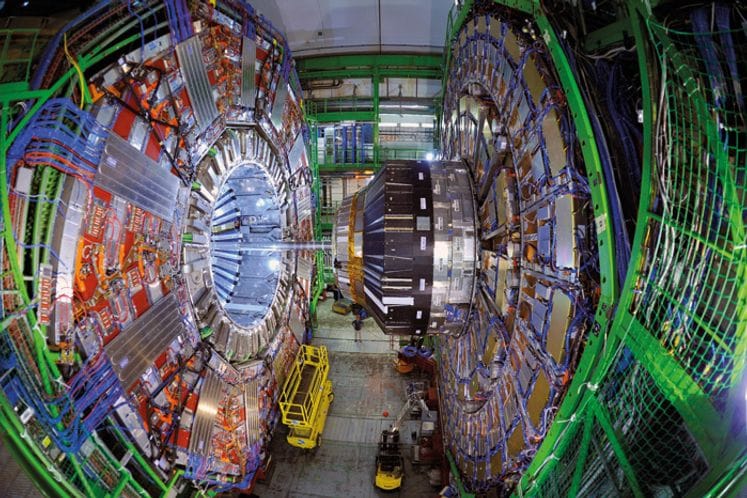- Government of Montenegro
Ministry of Education, Science and Innovation Montenegro Applies for Full Membership in CMS Expe...
Please note: The page below represents the archived content relating to the previous Government of Montenegro. Some of the information might be inaccurate or outdated.
Archive
Montenegro Applies for Full Membership in CMS Experiment at CERN for the First Time

Published on: Apr 4, 2017 • 4:49 PM Author: Ministry of Science
Montenegro applied for the first time for full membership in the CMS experiment, one of the largest LHC experiments at CERN, which involves more than 3,000 scientists, engineers and students from 200 research institutions worldwide.
Following a series of negotiations, on 27 March 2017, the CMS Management Board officially gave approval for Montenegro to be presented at the session of the CMS to be held on 7 April.
- The Board unanimously decided that Montenegro should be presented at the CMS, the CMS Management Board stated.
On Friday, 7 April, Montenegro will be presented at the CMS Board with a view to join as a full member. According to the rules of the CMS collaboration, voting will take place at the next session of the Collaboration Board, to be held on 23 June.
In the event that the decision is positive, Montenegro would enter the CERN’s scientific map for the first time. Networking our researchers with leading scientists in their field and their involvement in the latest technology projects has multi-layered significance. The youngest researchers, attending the master’s or doctoral study programmes, will also be part of these projects and will be able to conduct their research directly from the Montenegrin institutions, thanks to the availability of data.
The expansion of international institutionalized cooperation is important not only for science but also for the overall process of EU integration and the general reputation of Montenegro, which would, thanks to this international project, be part of the European Research Network.
The Ministry of Science will support the participation in this and similar international projects by paying for participation, i.e. the membership fees.
The Compact Muon Solenoid – CMS is one of the most complex scientific projects in which the highest energy collisions so far are produced.
CMS experiment has become the focus of the world public in 2012, due to the discovery of the Higgs boson. As of 2010, more than 500 research papers were written through the Collaboration, on the basis of the data obtained in the experiment.
Following a series of negotiations, on 27 March 2017, the CMS Management Board officially gave approval for Montenegro to be presented at the session of the CMS to be held on 7 April.
- The Board unanimously decided that Montenegro should be presented at the CMS, the CMS Management Board stated.
On Friday, 7 April, Montenegro will be presented at the CMS Board with a view to join as a full member. According to the rules of the CMS collaboration, voting will take place at the next session of the Collaboration Board, to be held on 23 June.
In the event that the decision is positive, Montenegro would enter the CERN’s scientific map for the first time. Networking our researchers with leading scientists in their field and their involvement in the latest technology projects has multi-layered significance. The youngest researchers, attending the master’s or doctoral study programmes, will also be part of these projects and will be able to conduct their research directly from the Montenegrin institutions, thanks to the availability of data.
The expansion of international institutionalized cooperation is important not only for science but also for the overall process of EU integration and the general reputation of Montenegro, which would, thanks to this international project, be part of the European Research Network.
The Ministry of Science will support the participation in this and similar international projects by paying for participation, i.e. the membership fees.
The Compact Muon Solenoid – CMS is one of the most complex scientific projects in which the highest energy collisions so far are produced.
CMS experiment has become the focus of the world public in 2012, due to the discovery of the Higgs boson. As of 2010, more than 500 research papers were written through the Collaboration, on the basis of the data obtained in the experiment.
Related articles:
Request for prequalification Jan 17, 2025
Is this page useful?
